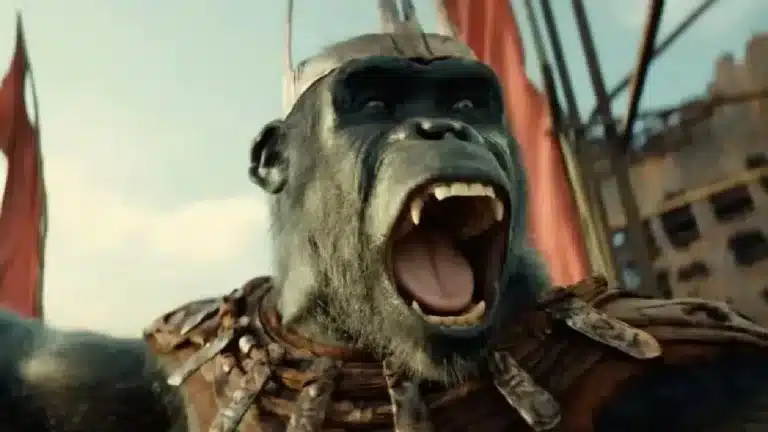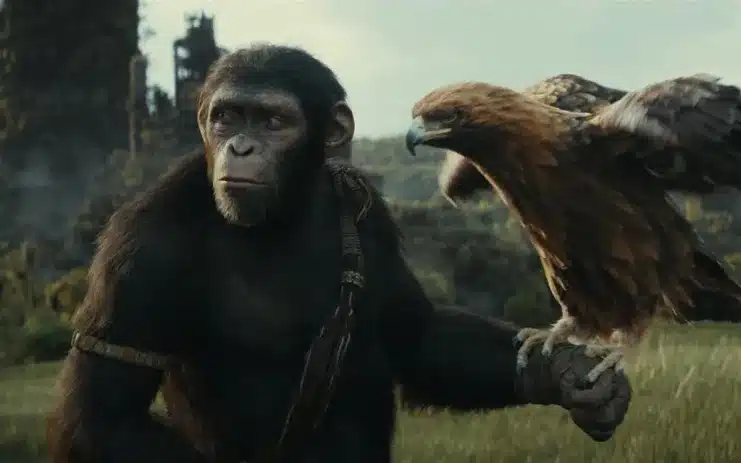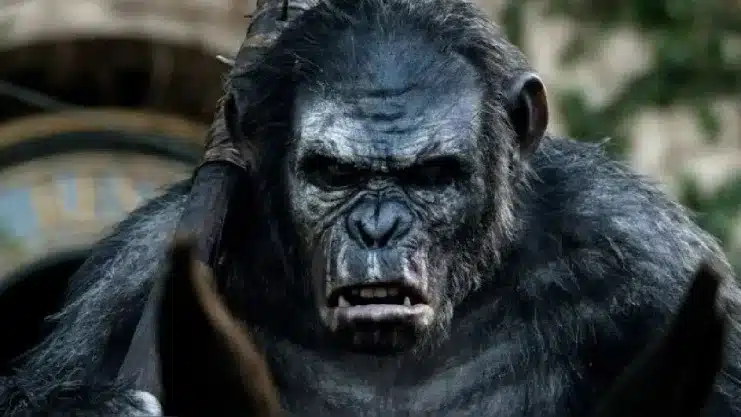
Discover the aspects that make Proximus Caesar a different villain from the one we know in the “Planet of the Apes” universe and the fate of Noah.
“Kingdom of the Planet of the Apes” is not just another series. Director Wes Ball brings us a post-apocalyptic world similar to the 1968 classic “War for the Planet of the Apes” 300 years later. In this new era, humanity has fallen into the dark ages. Forgetting technological and cultural developments. This setting sets the stage for a fascinating story and a surprising rediscovery.
New faces of the apes: Noah and Proximus Caesar
This new episode focuses on a chimpanzee about to discover his true identity and destiny. As she enters an unfamiliar world, Noah encounters surprising circumstances that will shape her character and leadership among the apes.
On the other hand, the title “Caesar”, which used to be a proper name, has been passed down from generation to generation and turned into a ceremonial title. Proximus Caesar, the new bearer of this title, emerges as a complex and fascinating character. He is not the usual villain; Ball further defines him as an antagonist that the audience can identify with. Rediscovering electricity is like magic to monkeys, giving it an almost mythical power.

Beyond “the government”.
Ball’s vision doesn’t end with “Kingdom of the Planet of the Apes.” Preparing for his next project “The Legend of Zelda”, the director assures us that this new chapter will lay the foundation for a completely new trilogy. With well-defined characters and potential story arcs, the future of the “Planet of the Apes” universe promises to be as exciting as its origins.
The future of this saga leaves us in suspense. How do these new stories tie into the fate of Earth as we know it in the original film? The possibility of time travel could open up a Pandora’s box of intriguing narratives, though this concept may be explored further in a future trilogy.
“Kingdom of the Planet of the Apes” promises to be a cinematic milestone, part of the lore of 20th century studios. In the year Opening exclusively in theaters on May 24, 2024, the film promises to be a visual and narrative spectacle, but also a major twist in the story of one of the most beloved and revered franchises in the world of cinema.


We were told in the original trilogy
The origin of “Planet of the Apes” represents a milestone in cinematographic narrative, marking the before and after of the way science fiction stories are told. “Rise of the Planet of the Apes” (2011) broke ground with a fascinating story about the artificial intelligence of apes. Here, a chimpanzee named Caesar becomes the leader of his species with exceptional intelligence due to genetic experimentation. The film is notable for exploring ethical issues in science and animal rights.
“Dawn of the Planet of the Apes” (2014) explores the relationship between humans and apes, depicting an Earth ravaged by a virus and the power struggle between the two species. Cesar, now a mature and established leader, faced problems both within the community and abroad.
Finally, “War for the Planet of the Apes” (2017) brings the trilogy to an emotional climax, Caesar seeks revenge and redemption. This chapter shows Caesar’s internal struggle to maintain humanity and compassion in the midst of the conflict, not just between humans and apes.
The trilogy is praised for its emotionally powerful narrative, ground-breaking visual effects, and profound reflections on human nature and coexistence. These films are not only entertaining but also thought provoking, setting a strong precedent for future films like “Kingdom of the Planet of the Apes”.
